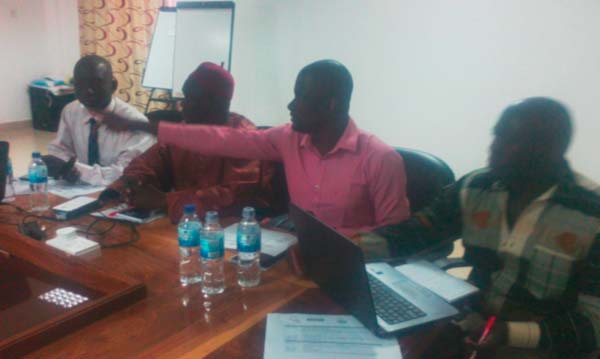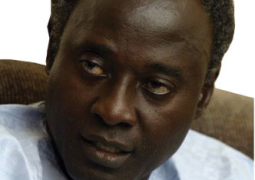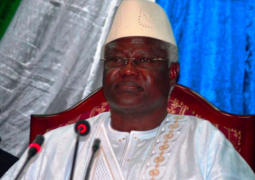
The
National Alliance for Food Security (NAFS), in collaboration with ActionAid-The
Gambia, the International Food Security Network and the Ministry of Land and
Regional Governance, commenced a two-day multi-stakeholders meeting to look at
the status of the ongoing national land policy development on Wednesday.
The
forum brought together stakeholders from different institutions and was held at
the ActionAid Conference Hall in Kanifing.
In
his statement, the project coordinator for National Alliance for Food Security,
Momodou Lamin Saidykhan, said food security could not be dealt with in the
absent of policy guidelines, ownership, control and access.
Mr
Saidykhan said that, over the years, the Alliance; in partnership with
ActionAid, has engaged in a series of activities aimed at empowering
small-holder farmers as well as engaging policy makers to understand the need
for a land policy that grantees the land ownership of all.
“Women
are contributing almost 80% of the food that we are consuming at the household
level and yet still they own less than 2% of the land,” he said.
This,
he said, led the national alliance to take the lead to bring stakeholders
together to discuss the development of this new policy formulation.
For
his part, the Chairman of National Alliance for Food Security, Lamin Fadera,
recalled that on 19 December 2016, NAFS in collaboration with partners
organized a day meeting of stakeholders on land policy and the formation of
multi-stakeholders platform on national land use and management policy.
Ebrima
Tamba Jammeh, Secretary General of the National Council of Sefolou, also spoke
at length on land policy, noting that it was timely in bringing stakeholders
together to discuss about the new policy on land.
In
his opening remarks, Buba Khan, of the Africa Advocacy Office, said the meeting
could not have come at a better time than now.
He emphasised the importance of land.
According
to him, a lack of policy for land security in The Gambia remains a cause of
concern, noting that land is life.
He
challenged the participants to share views during the consultative meeting in
order to generate good policy guidelines.



